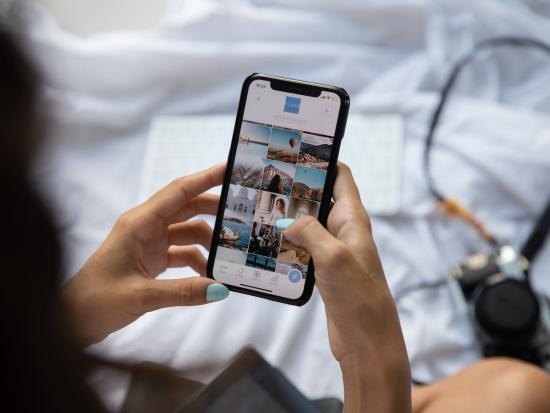
Whether it’s falling into internet rabbit holes or spending hours interacting on social media, a new survey reveals that the more time you spend fixated on screens, the more your mental health may suffer.
According to the poll, the average American feels like they lose three days a month just consuming online content. This survey of 2,000 individuals found that a staggering 36 days per year are spent scrolling, streaming, or binge-watching. The numbers are even higher for Gen Z, who report losing nearly five days a month to screen time.
The extensive study on media consumption by Talker Research also highlighted that overindulging in content often leads to guilt. On average, respondents experience three bouts of guilt each month due to their media habits. Americans, on average, consume around six hours of content daily, while Gen Z’s consumption rises to nearly seven hours.
The study compared participants based on their self-reported mental health. It found a concerning link between poor mental health and high media consumption. Those with “very poor” mental health reported losing nearly six days each month to screen time, with 19 percent admitting to losing 15 or more days monthly. In contrast, those with excellent or good mental health only lost about 2.7 days a month to content consumption.
This guilt was also closely linked to mental health. Those with “very poor” mental health reported experiencing guilt approximately seven times per month. Nearly half of the respondents (42 percent) confessed to feeling like they consumed “too much” media, while 36 percent said their mood was “often” negatively impacted by something they saw on social media.
Gen Z respondents were the most likely to feel they consumed excessive media, with 66 percent agreeing with this sentiment. Interestingly, people with “very poor” mental health were the most frequent users of TikTok (38 percent) and the most likely to multitask by using their phones while watching TV (46 percent).
Dr. Sham Singh, a psychiatrist at Winit Clinic, shared three practical strategies for managing screen time and reducing guilt:
Create “Tech-Free” Zones: Dr. Singh suggests designating specific areas in the home where technology is off-limits. “Making your bedroom a tech-free zone can improve sleep quality and relaxation by eliminating the distractions of screens,” he explains. “Similarly, a tech-free dining room fosters better conversations and family bonding. These intentional spaces can reduce screen time and encourage healthier interactions or moments of quiet.”
Set Phone-Free Intentions: Dr. Singh advises setting a clear purpose before picking up your phone. “Before reaching for your phone, take a moment to think about what you need to accomplish—whether it’s checking messages, looking up information, or responding to an email,” he says. “This practice promotes mindful technology use and prevents falling into the trap of mindless scrolling.”
Reflect on Content Consumption: Singh recommends keeping a journal to track your media experiences. “After consuming content, take a few minutes to write down how it made you feel—whether inspired, informed, or drained,” he suggests. “This reflection helps you identify which content enhances your life and which feels like a waste of time. Over time, you’ll gain a clearer understanding of your media habits and can make more intentional choices in the future.”
